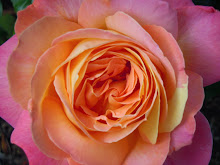During
the late winter or early spring of 1953, I drove with my folks down
to San Diego for a visit with Marold and Jeanne. After their
marriage, Marold was in the navy and stationed there for awhile. I
guess I showed my folks such places as Muir Woods, and of course
there were visits with the Gust Knocks and the Uddens. But I have a
rather poor recollection of sightseeing or visiting beyond that.
It was
during my parents’ stay with me that my association with Jean
began. When it developed that Jean was a Christian Scientist, my
parents were distressed, particularly my mother. Her traditional and
conventional viewpoint of Christianity placed Christian Science
outside the pale of acceptable doctrine. I guess at the time my
viewpoint still retained enough of my childhood training and
indoctrination that I felt there was some basis for this opinion. In
a way the confrontation (if it was as strong as that between my
parents and me) only served in the long run to further weaken my
regard for traditional Christianity.
My
attitude toward Christian Science has softened I guess since my
feelings during this period, but I still regard the basic teaching as
unfounded. As for the founder, Mrs. Eddy, what little I have read of
her writings stamps her as a rather befuddled elderly female with a
proclivity for reading material that she was incapable of fathoming
and building on this a fanciful dogma, unsupported by the real world.
I have
attended a few Christian Science services and to me they have an aura
of unreality — that thinking humans could take what was being read
or said seriously. In a way my reaction now extends to the
conventional protestant services I now attend on a limited schedule.
So I suppose that Christian Science has served to direct my thinking
although largely in sort of negative way.
There is
one aspect of Christian Science that appeals to me, and that is the
implicit acceptance of natural processes in the realm of living or
dying. This is not the way a Christian Scientist would describe his
beliefs, but that is what they fundamentally are. During my lifetime
I have had three major surgeries, two of which were critical in
determining life or death. Actually the last surgery was corrective,
the medical procedure which determine life or death was the emergency
procedure before it.
In
retrospect I rather feel that the prolonging of my life, particularly
in the ruptured appendix occurrence, was not necessarily the best
outcome, either for me or others involved. In many respects life is a
burden, not a gift, and it is a condition imposed will-nilly on
individuals who never have any way in the matter. Once in existence a
person is dominated by the instinct to live and survive. It is a
mistake I think to attribute any basic goodness to this feeling of
the intrinsic worth of live and living. You simply “are,” and
that is about all that can be said.
When one
is alive, one appreciates the physical environment, relatives,
friends, occurrences, but underneath this facade of enjoyment and
acceptance there is the underlying reality of the real meaningless of
existence. This is not what Christian Scientists would say they
believe but I think their conduct has elements of it.
Be that
as it may, my association with Jean was interrupted during much of
the summer of 1953 by a feeling of mutual disagreement in the field
of religion. In Jean’s case it was a holding to a way of life that
had served her well; in my case it was a feeling that Christian
Science had so little obvious reality and was basically at odds with
conventional Christianity that it was an inseparable barrier between
us.
In the
end the breach was subordinated to the attractions we felt between us
and we resumed our earlier relationship. We were married in November
of that year. As the Lutheran church of which I was a member
(Bethany, on University Avenue in Berkeley) had some church function
on that day we had selected, we used a church on Durant (?) for the
site of the marriage.
This
church no longer stands — it was later torn down for some reason.
The pastor of the church (Ross Hidy?)
was of the feeling that marriage services in the edifice should be
conducted by the resident pastor; in the end he capitulated to the
extent that Gust Knock was the minister really conducting the
marriage, although Hidy was in attendance. I think one reason that he
consented was that he knew the Knock family quite well. Since we knew
the Knock family and appreciated them in man ways we were happy that
the compromise was reached. In a way the incident further diminished
my regard for church officialdom, with its attitude of parochialism.





No comments:
Post a Comment